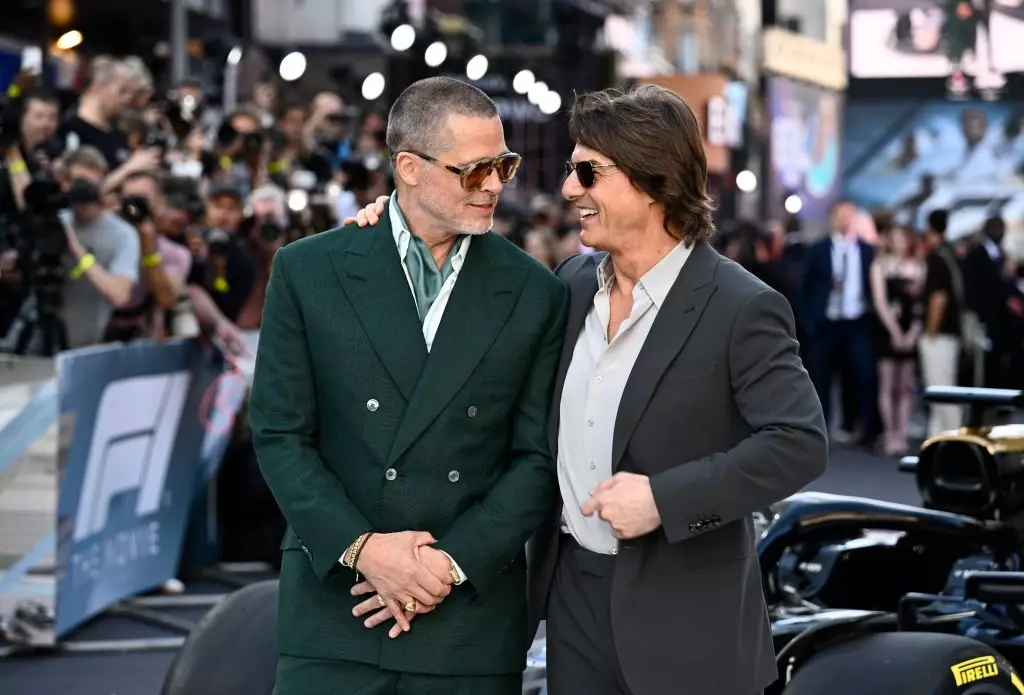In the realm of racing movies, Hollywood has consistently promised high-speed drama, visceral thrills, and compelling stories rooted in real competition. Yet, more often than not, these films serve as elaborate illusions, disguising superficial storytelling behind flashy visuals and big-name stars. The case of the attempted Ford v Ferrari project underscores a broader industry pattern: filmmakers embellish the racing world to pander to audiences craving spectacle over substance. Despite initial enthusiasm from stars like Brad Pitt and Tom Cruise, the film’s journey from conception to box office success illustrates how Hollywood’s obsession with marketable narratives can distort the gritty reality of motorsport. What emerges is a sanitized, Hollywoodized version that sacrificing authenticity for entertainment.
Stars and Studio Politics: The True Cost of Spectacle
The behind-the-scenes saga reveals that personal ambitions and studio objections often sabotage authentic storytelling. Brad Pitt’s revealing comments about Tom Cruise backing out because of their desire to authentically play drivers highlights how personal passion can clash with commercial interests. When actors seek genuine roles—like Pitt’s interest in embodying Ken Miles or Cruise’s aspiration to portray Shelby—their visions are often constrained by studio budgets and commercial expectations. Studios binge on safe bets, dismissing the raw intensity of racing in favor of blockbuster formulas. This compromises the integrity of the narrative, turning authentic stories into mere pinups of heroism and adrenaline rather than nuanced portrayals of the sport’s true grit.
The Myth of Realism and the Power of Marketing
The gap between reality and Hollywood’s version becomes even more apparent considering the film’s development challenges. Director Joseph Kosinski’s struggles with budget constraints exemplify how economic realities inhibit genuine storytelling. Instead of capturing the visceral chaos and technical intricacies of racing, studios prefer glossy visuals and hero arcs that appeal to mass audiences. The seamless blend of F1’s fast-paced innovation and human drama that fans crave remains elusive when commercialization overtakes creative authenticity. The narrative becomes a carefully curated spectacle, promoting a glamorous image of racing fans are eager to embrace, yet often disconnected from the sport’s true complexity.
Impact on Audience Perception and Cultural Legacy
What’s troubling is how this Hollywood distortion influences public perception of racing. Fans of the sport deserve accurate depictions that honor the skill, danger, and ingenuity involved. Instead, Hollywood’s version risks trivializing the sport into a mere backdrop for star power. The potential sequel hints at an opportunity to portray racing as more than just an adrenaline rush; it could be a platform for storytelling that embraces the sport’s authenticity. But whether this will happen remains uncertain, as commercial interests continue to dominate creative vision.
Personal Aspirations versus Commercial Realities
Brad Pitt’s expressed desire to return to racing themes again illustrates a disconnect between personal passion and industry constraints. His longing to honestly explore racing careers and the human stories behind them reveals a deeper yearning for authenticity that Hollywood too often suppresses. It’s not just about making a film; it’s about respecting the sport’s heart and soul. Central-wing liberalism should advocate not only for fair representation but also for genuine storytelling that elevates cultural understanding, rather than succumbing to superficial product placement.
Hollywood’s racing films have long been caught in a cycle of compromise—balancing spectacle with truth, commercial success with authenticity. As the industry continues to churn out glossy recreations, one must question how much of the real racing world remains intact in these narratives. There is a vital need for films that challenge the sanitized version of motorsport, that embrace its complexities, technical mastery, and human drama. Only then can Hollywood truly honor the sport and its aficionados, moving beyond superficial thrills to meaningful storytelling rooted in authenticity and respect for the racing community.


Leave a Reply